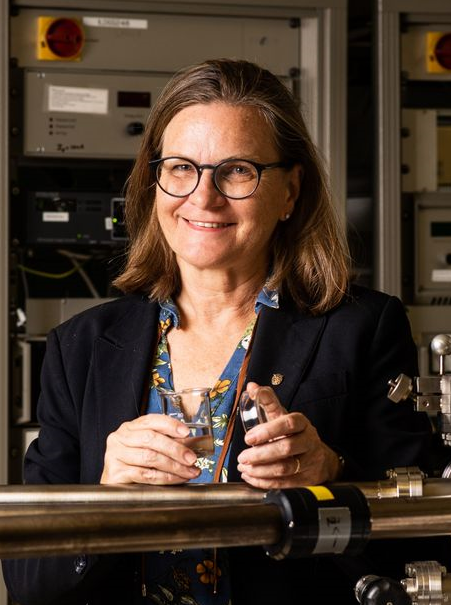
This is the 5th edition of the International Day of Women and Girls in Science.
Since the European Commission advocates equality, diversity and inclusion continuously, there is no surprise that the Commission encourages women participation also in research, e.g. through EIC Pathfinder/FET funding programmes supporting breakthrough innovation in various domains, such as nanotechnology, bioengineering, artificial intelligence, digital communication, environmental science or energy.
We have asked some of our FET innovators to share their thoughts and motivational messages to all women and girls thinking about, or already pursuing careers in research and STEM disciplines. Today, we proudly present you four of them: Dr. Ulrike Diebold, Dr. Cecilia Laschi, Dr. Regina Luttge, Dr. Laurence Méchin and Dr. Rosa Palacín.
Dr. Ulrike Diebold is a physicist and a materials scientist who is a Professor of Surface Science at Vienna University of Technology. She is known for her ground-breaking research on the atomic scale geometry and electronic structure of metal-oxide surfaces. She participates on the A-LEAF project proposing a novel concept for a photo-electro-catalytic cell able to directly convert water and CO2 into fuels and chemicals (CO2 reduction) and oxygen (water oxidation) using exclusively solar energy.
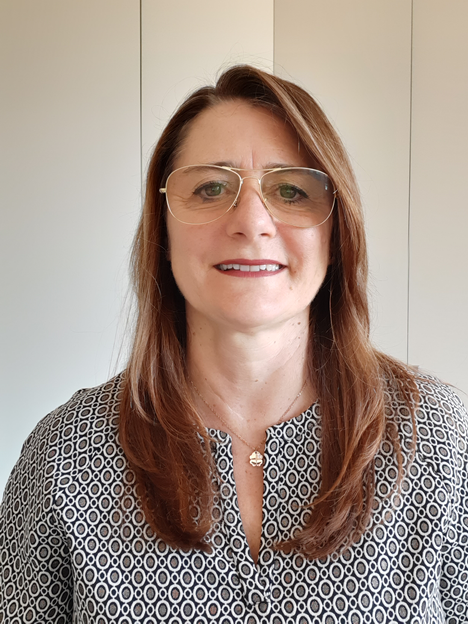
Dr. Cecilia Laschi is an expert in the field of soft robotics. She is Full Professor at the BioRobotics Institute of Scuola Superiore Sant'Anna in Pisa and Professor at the National University of Singapore, in the Department of Mechanical Engineering. She coordinated the OCTOPUS project, which aimed at investigation and understanding the principles that give rise to the octopus sensory-motor capabilities and incorporating them in new design approaches and ICT and robotics technologies.
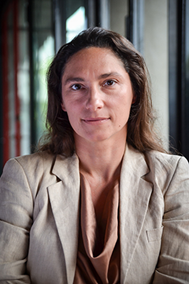
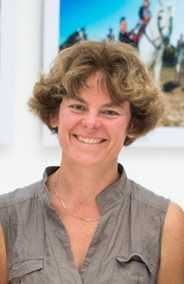
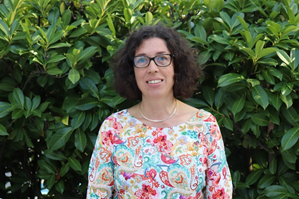
What would be your advice to girls and young women considering careers in STEM disciplines?
Ulrike Diebold: “This is a perfect time to pursue a career in STEM: There are so many problems that need solving, and an education in a STEM field sets you up perfectly for helping solve them. If you have the brains & grit: go for it!”
Cecilia Laschi: “My advice to young women is to always follow their inspiration and passion. This is what makes any person's career successful and rewarding. STEM can be an exciting field for their career. I don't think anybody today would advice them differently, if they wish to consider a career in STEM, at least explicitly. Should they receive any implicit discouragements, they should just listen to their passion. They shouldn't be afraid of a mostly male environment, as that doesn't count when you work well and with pleasure. Also, I do recommend to all young women not to let gender consideration to have a role in decisions about career and future, and during their work, in the interaction with colleagues.”
Regina Luttge: “The one advice to girls and young women considering careers in STEM I would want to give is, if it is your passion: just do it! And, when following your studies do not worry about what may or not may be possible in the future because a diploma in one of these disciplines opens doors for a career in any sector.”
Laurence Méchin: “Please go ahead. Your first motivation should be your passion for science and technology. This is not a question of gender at all. Even more, I believe diversity is a source of innovation. The more different people working in the STEM field, the more successful it will be.”
Rosa Palacín: “Follow your gut instinct to become what you aspire to. It may seem that there are more barriers ahead in STEM than in other disciplines, but they can be overcome with perseverance. Besides empowering yourself you'll serve as a model to others and help to gradually decrease the barriers.”
What do you like on research? / What is the best part of research?
Ulrike Diebold: “There are so many good parts: It is a most exciting feeling if to discover something that no one has ever seen before. The luxury to pursue my own ideas. The privilege to work with talented and motivated young people day in and day out. And to see them ’take off and fly' - develop into independent researchers.”
Cecilia Laschi: “Research is exciting for the new ideas that are generated. The creativity in it is what I like, together with the process for building (in my own case of robotics research) our new robot prototypes. So, the best part of research is at the start, when we conceive a project and put all the research pieces together to devise a plan that can bring to progress, either scientific or technological, and hopefully social. And the final part, when we see the results. In project terms, the proposal preparation is of course stressful, but one of my favourite parts, because it is creative. The project start, the kick-off meeting, is also exciting, because it is when the synergy of a consortium comes together with a lot of promise for the future. And the final review meeting, again stressful, is rewarding because it is a great opportunity for gathering all results and put them back in a unified picture.”
Regina Luttge: “What I find most fascinating about research in my field (nano- and microfabrication) is the fact that I am part of a very exciting creation process at the interface with other disciplines. In one of my current research projects, for example, we design, realize and test microfluidic chips to shine light on the workings of the nervous systems in Parkinson’s Disease. Combining engineering, neurochemistry, stem cell technology, materials science, medicine and neuroscience in one project is an amazing journey on which I get inspired and motivate every day by the inputs of my fellow researchers and students and together take on the next challenge.”
Laurence Méchin: “I see research as a puzzle, which I decide to solve. Personally, I really appreciate the moments when I manage to put the pieces of the puzzle together, sometimes when writing papers. These feelings are even better when I can share them with PhD students, post-docs or colleagues inside or outside my lab as part of long-term friendly collaborations.”
Rosa Palacín: “What I like most in research is freedom to decide the problem to attack, the means to use. I also value the good vibrations derived from success but also understanding failure, which may even be more important. The feeling that one never stops learning is really unique!”
What is your personal experience with FET/Pathfinder funding scheme?
Ulrike Diebold: “We are involved in a very exciting project: Building a device that uses sunlight to convert CO2 from the air into fuel - in one word, an artificial leaf. Of course nature knows how to do that already, but the efficiency is lousy. If engineers and scientists work together, we can do a much better job. If we succeed, our device could really make an impact.”
Cecilia Laschi: “The FET/Pathfinder funding scheme is my favourite. It funds original ideas that can be disruptive and bring what is real breakthrough progress. It also gives opportunities to new ideas and the people who propose them, without being limited by their indicators and previous experience. In my own experience, when I was funded what I consider my most important project, I had no experience on that topic. The project was about the study of the octopus as a model for robotics. My experience was in robotics, but in other aspects, like those related to the 'brain' of robots. Instead, this new project was all about the body, and a soft body - very new in robotics. I had realized that was strongly correlated to the behaviour that the brain can generate. But my experience was not about materials, for example. Still, the project has been successful and what we today call soft robotics is widely spreading worldwide.”
Laurence Méchin: “My personal experience with FET funding scheme is through a FET Open funded project named ByAxon for "Towards an active bypass for neural reconnection" during which I learnt a lot in contact with young colleagues recruited in the lab as PhD students and post-docs, and with colleagues in the partner labs from different countries and different scientific fields than my own.”
Rosa Palacín: “I am very happy to have coordinated a FET-Project, it has enabled me to grasp a more global perspective in the full project progress and to contribute to all aspects, I've learnt a lot.”
More information about women in FET projects
- Rachel Armstrong on microbes and urban sustainability – on the FETFX website
- Portrait of a FET researcher Dr. Ilka Axmann
- Interview with Marta Fajardo presenting a new 3D X-ray camera
- Interview with Raquel Garde – on the FETFX website
- Interview with Dr. Regina Luttge about medical microsystems technologies
- Anna Maiques and Portable device to treat major brain disorders remotely – on the FETFX website
- Interview of Barbara Mazzolai – PLANTOID project
- Interview with Future and Emerging Technologies Innovator Silvia Scaglione
- Female scientists share their thoughts on gender balance in modern research – on the FETFX website
Background information
FET-Open and FET Proactive are now part of the Enhanced European Innovation Council (EIC) Pilot (specifically the Pathfinder), the new home for deep-tech research and innovation in Horizon 2020, the EU funding programme for research and innovation.

